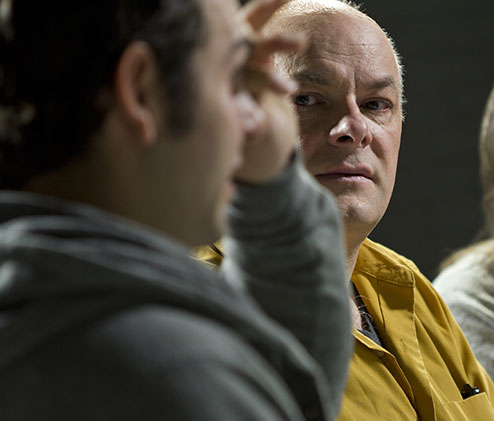

Blog

Prisoner Healthcare: Who are we to judge?
Sunday August 22, 2021
The United Nations has stated that health is a fundamental human right and every human being is entitled to the enjoyment of the highest attainable standard of health conducive to living a life in dignity.
A simple Google search on the right to health in Australia directs you to the Attorney-General’s Department and the Australian Human Rights Commission, both of which highlight the importance of ensuring human rights are upheld in marginalised and vulnerable groups of the population.
Aboriginal prisoners are one of the most marginalised population groups in Australia and they are perhaps amongst the most vulnerable in terms of health needs, dealing not only with the overall increased burden of chronic illness that occurs in Aboriginal and Torres Strait Islander (ATSI) people, but also with the well-established fact that the healthcare requirements of all prisoners, are higher than that of the wider Australian population.
The needs of this group of people extend from the deep, gaping wounds of inter-generational trauma and identity loss fuelling criminal behaviours, to lifestyle and genetic inheritance patterns driving levels of chronic disease and mental illness that would stun healthcare professionals unfamiliar with this sector. Bearing all these factors in mind, it’s clear to see that ATSI prisoners are highly dependent on equitable access to healthcare.
Yet the message Australia communicates to its citizens and the rest of the world as those who are incarcerated continue to be excluded from the Medicare Benefits Schedule (MBS), is that prisoners don’t deserve the same healthcare rights as the rest of us.
As the Senior Medical Officer of Mawarnkarra Health Service (a remote Aboriginal medical service in the Pilbara town of Roebourne), over the eight years of my employment I have witnessed firsthand the soberingly high statistics of incarceration levels for ATSI people, as my patients or theirrelatives or their partners or their friends or their children are removed from society for a few months or sometimes a few years.
In the Aboriginal health setting, we do not think of prisoners as a separate societal group. They are still our patients. They are still members of the community. We often even see them during their incarceration as they are brought cuffed and chained to the health service for dental or optometry appointments. We have replaced contraceptive implants and performed cervical screening in the shadow of a prison guard when the prison service did not have suitably qualified clinical staff.
Whilst I have known some patients to commit very serious crimes, a large proportion are incarcerated for driving offences or unpaid overdue fines. A stint in the ‘lock-up’ is almost considered part of the course. One female patient facing sentencing told me, “It’s no big deal, I have friends there”.
The trouble is, when these patients with their diabetes, heart disease, addiction, depression or trauma are in prison, they are unable to access the same level of care that they would get in the community.
Without access to MBS, what provision is there for prisoners to be placed on a robust chronic illness management plan and team care arrangement, or a mental healthcare plan? Without MBS, ATSI prisoners are not entitled to the annual health check, MBS item number 715, which screens for physical and mental illness and for conditions unique to the ATSI population such as trachoma or rheumatic heart disease.
In addition to the diseases a patient may go into prison with, let’s not forget what they can come out with, from new mental health diagnoses or progression existing of mental health disorders like post-traumatic stress disorder (PTSD), to Hepatitis C which is six times more prevalent in prisons than the general population.
Managing this level of complexity of disease requires intensive, holistic care with support for behaviour change through multi-disciplinary team involvement.
How can rehabilitation happen with only periodic support or intermittent telehealth appointments with someone you’ve never met in person?
Change requires frequent and focused intervention. It also requires experienced healthcare practitioners who are invested in the community. Local Aboriginal health services are perfectly positioned to offer this. The period of incarceration is a prime opportunity to interact with cultural understanding towards vulnerable, marginalised people. It is the chance for medical services to establish and foster a relationship with prisoners that can be carried on in the community once the term of incarceration has been completed. And this might just be the start of breaking the cycle of re-offending.
 Dr Seema Basil
Dr Seema Basil
Senior Medical Officer
Mawarnkarra Health Service, Roebourne

